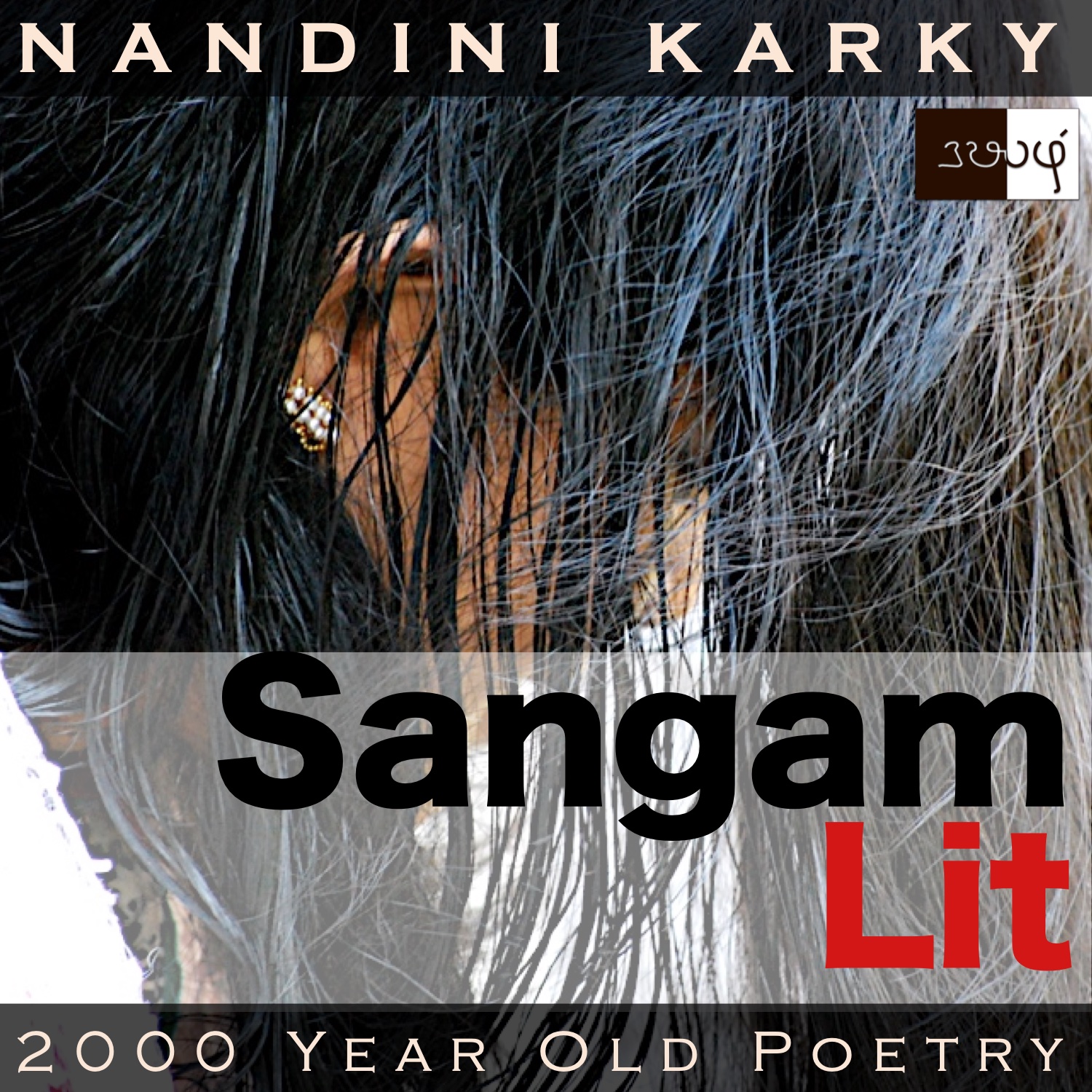Podcast: Play in new window | Download
Subscribe: Apple Podcasts | Spotify | Amazon Music | Android | iHeartRadio | TuneIn | RSS | More

In this episode, we observe the frenzied state of a heart in the first rush of love, as depicted in Sangam Literary work, Kurunthogai 165, penned by Paranar. Set in the hills of ‘Kurinji’, the verse speaks in the voice of the man to his heart, after the lady’s confidante refuses his request to tryst with the lady.
மகிழ்ந்ததன் தலையும் நற உண்டாங்கு,
விழைந்ததன் தலையும் நீ வெய்துற்றனை-
இருங் கரை நின்ற உப்பு ஒய் சகடம்
பெரும் பெயல் தலைய வீஇந்தாங்கு, இவள்
இரும் பல் கூந்தல் இயல் அணி கண்டே.
‘Ruined by desire’ is the central theme of this one. In the opening line ‘மகிழ்ந்ததன் தலையும் நற உண்டாங்கு’ meaning ‘wanting to drink even after bring inebriated’, the verse seems to make a pithy statement about addiction. From abstract elements of the mind, the focus shifts to a real object, ‘a salt wagon on a huge shore’ in ‘இருங் கரை நின்ற உப்பு ஒய் சகடம்’. To add intensity to this image, there’s ‘a heavy downpour’ in ‘பெரும் பெயல்’. Ending with the words ‘இரும் பல் கூந்தல் இயல் அணி கண்டே’ meaning ‘seeing the beauty of her dark, thick tresses’, the verse highlights the crowning glory of a Sangam woman and invites us to know more.
Interwoven threads of desire and addiction seem to run through the fabric of this verse. The context reveals that the man had fallen in love with the lady and the lady too returned his feelings. Following the dictates of the system in place then, the man seeks the help of the lady’s confidante to further his relationship with the lady. As was custom, the confidante keeps refusing the man’s requests, perhaps to test the intensity and durability of his love for the lady. One day, after he’s refused by the confidante, the man says to his heart, “Akin to wanting to drink again, even after being intoxicated by a drink, after relishing her company once, you seek it again; Like how a salt bearing cart near a huge shore, falls apart after a heavy downpour, you are lost after seeing the natural charm of her dark and flowing tresses.” With these words, the man declares the immense love bubbling in his heart and gives word to the agony of being apart from his beloved.
Time to explore the nuances in this tiny verse! To explain what he’s feeling, the man chooses to portray the feelings of another person and this person happens to be one, who has had a taste of an alcoholic drink. Even after feeling the surge of that intoxication, that person would yearn to have one more and that’s exactly how you feel, the man tells his heart, as it yearns to be with the lady after relishing her union once. Then, to make these emotions even more vivid, he brings before the eyes, a cart carrying huge loads of salt trying hard to climb on a shore, and at that moment, what if, the rains were to pour and lash at it? Utter ruin, isn’t it? And that’s what’s happening to you, the man explains to his heart, as it catches sight of those flowing tresses of his lady love!
What struck me in this verse is the timelessness of the core thought outlined here! That effortless comparison between love and addiction is precisely what stuns me. Professors of psychology world over will nod their heads in acceptance if they were to understand the first two lines of this verse. Numerous scientific papers in leading psychology journals have dwelt on this similarity between romantic love and drug addiction. What we must not forget is that this thought was penned more than two thousand years ago, before the advent of neurochemistry and brain imaging. This undeniable scientific thought was discovered ages ago in this Tamil land by observation of human emotions without any fancy tools. Kudos to the Sangam poets who teach us about the world within us and show ways to master it, something I think, is a prerequisite to understanding and exploring the world and worlds outside.




Share your thoughts...